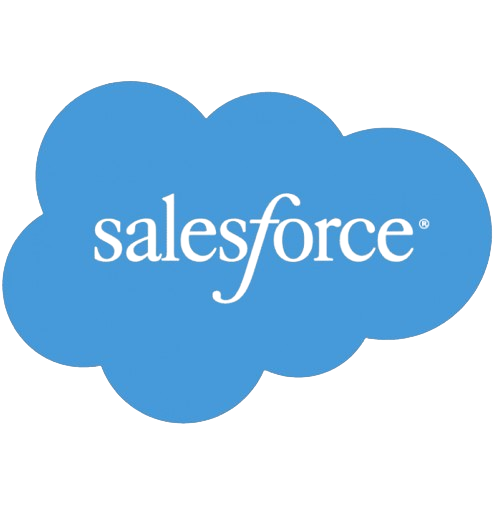Benefits of ERP Systems in 2026
Updated on March 2, 2026
In the constantly shifting business world, staying competitive means keeping up with new technologies. Businesses are challenged by the growing need to manage their processes more efficiently while meeting the demands of a fast-paced market. Whether you’re a startup, a mid-sized enterprise, or a large corporation, you need a solution that helps you manage everything—from finances and supply chains to customer interactions and beyond. This is where Enterprise Resource Planning (ERP) systems step in.
ERP systems are like the heartbeat of your organization. They bring all the vital parts of your business together into a single, easy-to-manage platform. But the true beauty of ERP isn’t just in what it does—it’s in how it empowers you to grow, change, and thrive in a world that doesn’t wait for anyone. In this blog, we’ll explore ERP in detail, dive into its top benefits, and guide you through choosing the right ERP system for your business. We’ll also explain how Cloud Consulting Inc. (CCI) can help you implement and manage ERP systems that truly transform your business.
>> Related Post: Best ERP Software/Systems
What is ERP?
ERP, or Enterprise Resource Planning, is more than just a software tool; it’s a complete system that brings together all your core business functions under one roof. Imagine being able to see what’s happening with your inventory while also having real-time access to your financials, HR, and customer service data—all from one screen. That’s the power of ERP.
In simple terms, ERP helps you manage key business processes like accounting, inventory management, supply chain operations, and customer relationships in one centralized place. No more juggling multiple tools or dealing with disconnected systems. Instead, everything flows together, giving you a clear, unified view of your business at any given moment.
But ERP isn’t just about convenience. It’s about driving better decision-making, reducing costs, and allowing your business to grow in ways that wouldn’t be possible with outdated or fragmented systems.
>> Related Post: ERP & Business Intelligence: Role and Benefits
Top 10 Benefits and Advantages of ERP
Now, let’s explore how ERP systems can bring about transformative changes for your business. These aren’t just small benefits; they are the changes that shift how you do business, helping you stay competitive and succeed long-term.
1. Improved Efficiency
One of the biggest reasons businesses adopt ERP is the sheer efficiency it brings. By integrating various departments into a single system, ERP eliminates the time wasted on repetitive tasks. It allows for the automation of routine tasks like order processing, payroll, and financial reporting. This frees up your employees to focus on more strategic activities, ultimately helping your business move faster and smarter.
2. Better Decision-Making
Decision-making often gets bogged down by incomplete or outdated information. With an ERP system, that problem disappears. ERP systems give you access to real-time data, allowing you to make decisions based on current, accurate information. Whether you’re tracking sales performance or analyzing customer trends, having the right data at your fingertips can make all the difference.
3. Enhanced Collaboration
Miscommunication or lack of information between departments can create bottlenecks and confusion. An ERP system connects all departments on the same platform, ensuring that everyone—from finance to HR to sales—works with the same data. This encourages better communication and collaboration, leading to more cohesive teamwork and better overall results.
4. Cost Savings
While ERP systems require an initial investment, they ultimately help businesses save money in the long run. By organizing operations, reducing manual errors, and automating processes, ERP cuts down on operational costs. Additionally, it reduces IT costs by consolidating multiple systems into one platform.
5. Real-Time Data Access
In today’s world, waiting for data updates can be detrimental. Whether inventory, financials, or sales figures, businesses need real-time access to critical information. ERP systems provide this, giving you the ability to act swiftly and stay ahead of potential issues before they snowball into bigger problems.
>> Related Post: Best ERP consulting companies in 2026
6. Scalability for Business Growth
As your business grows, so do your operational needs. ERP systems are designed to scale with your business, whether you’re expanding to new locations, increasing your workforce, or adding new products or services. This means you won’t have to worry about your software holding you back as your company evolves.
7. Regulatory Compliance
Many industries are subject to strict regulations that must be adhered to. Failing to comply can lead to hefty fines or even legal trouble. ERP systems help businesses stay compliant by tracking regulations and ensuring that the necessary processes are in place to meet industry standards.
8. Customer Satisfaction
ERP systems provide a centralized view of customer interactions, allowing businesses to manage customer service better, respond to inquiries quickly, and track orders more efficiently. With accurate, up-to-date customer data, businesses can offer personalized and timely services that enhance customer loyalty.
9. Inventory Management
Managing inventory is one of the most essential yet complicated tasks for businesses, especially those in retail or manufacturing. ERP systems help businesses monitor their inventory levels in real-time, reducing the risk of stockouts or overstocking. This leads to better inventory turnover and increased profitability.
10. Data Security
Security breaches are a major concern for businesses of all sizes. ERP systems provide built-in security features like data encryption and multi-factor authentication to protect sensitive information. Additionally, they allow administrators to set user permissions, ensuring that only authorized personnel can access certain data.
>> Related Post: Top ERP Trends in 2026
Steps of Choosing an ERP System
Choosing the right ERP system can feel overwhelming. With so many options available, it’s important to approach the selection process with a clear plan. Below are the steps to help you choose an ERP system that fits your business’s specific needs:
- Understand Your Needs
The first step in choosing an ERP system is understanding what your business needs most. Do you need better inventory tracking, improved financial reporting, or enhanced customer relationship management? Define your key requirements upfront.
- Set a Budget
ERP system comes with a range of price tags, depending on the size of your business and the features you require. It’s important to set a realistic budget that considers not only the initial setup cost but also long-term maintenance and support costs.
- Evaluate Your Options
There are many ERP vendors on the market, each offering a variety of features. Research potential ERP systems that align with your industry, size, and business goals. Look for case studies, reviews, and comparisons to find the best fit.
- Request Demos and Trials
Before committing to an ERP system, request demos and trials from your shortlisted vendors. This will give you a chance to see the software in action and determine if it meets your expectations.
- Plan for Implementation
Implementing an ERP system isn’t something that happens overnight. It requires careful planning and resources. Work with your chosen vendor to create an implementation timeline that works for your business, and ensure that you allocate enough time for training and troubleshooting.
- Prepare for Change Management
Implementing an ERP system will likely change the way your employees work. It’s crucial to communicate these changes effectively and provide adequate training to ensure a smooth transition.
>> Related Post: SAP Sapphire 2026: Cost, Dates, Registration, Tickets
ERP Services Offered by Cloud Consulting Inc. (CCI)
Cloud Consulting Inc. (CCI) is your partner in navigating the world of ERP systems. Our team understands that every business is unique, and we provide services that align perfectly with your specific needs.
- ERP Professional Services: Whether you’re selecting a new ERP system, planning an upgrade, or optimizing an existing solution, we offer tailored advice and strategic insights to ensure maximum business value.
- ERP Consulting Services: Our consultants work closely with you to assess your business needs, recommend the most suitable ERP solution, and develop a plan for successful implementation.
- ERP Implementation Services: We handle the entire implementation process from start to finish, ensuring minimal disruption to your operations while setting you up for long-term success.
- ERP Software Development: Our experienced developers work with you to create scalable, efficient, and fully integrated ERP systems that streamline your operations and adapt as your business grows.
- ERP Integration Services: Seamlessly connect your ERP system with other essential business applications through our ERP integration services.
Conclusion
In the dynamic business environment of 2026, ERP systems are not just helpful—they’re essential. ERP systems provide unmatched efficiency, insight, and growth potential by integrating every aspect of your business into one platform. Whether you’re looking to improve decision-making, enhance collaboration, or streamline operations, ERP can transform the way you do business.
At Cloud Consulting Inc., we specialize in delivering ERP solutions that don’t just meet your needs—they elevate your business to new heights. Our expert team is dedicated to providing the guidance, support, and expertise you need to succeed.
FAQs: Top Advantages of ERP Systems in 2026
1. What industries benefit most from ERP systems?
ERP systems benefit a wide range of industries, including manufacturing, construction, fashion, pharmaceuticals & healthcare, banking and finance, food and beverages, and more. Any industry that deals with complex operations and needs real-time data access can benefit from an ERP system.
2. How long does it take to implement an ERP system?
The time it takes to implement an ERP system varies based on the size of your business and the complexity of the system. However, most implementations take several months from start to finish.
3. How can an ERP system improve customer satisfaction?
By providing a centralized view of customer data, ERP systems allow businesses to respond to customer inquiries faster, track orders more efficiently, and offer personalized service—all of which improve customer satisfaction.
4. What should I consider when choosing an ERP vendor?
When choosing an ERP vendor, consider factors such as the vendor’s experience in your industry, the features they offer, their customer support, and the overall cost of the system.
5. Is ERP suitable for small businesses?
Yes! ERP systems are scalable, which means they can be customized to suit the needs of small businesses as well as large enterprises. Explore ERP software for small businesses designed specifically for small and mid-sized businesses.









